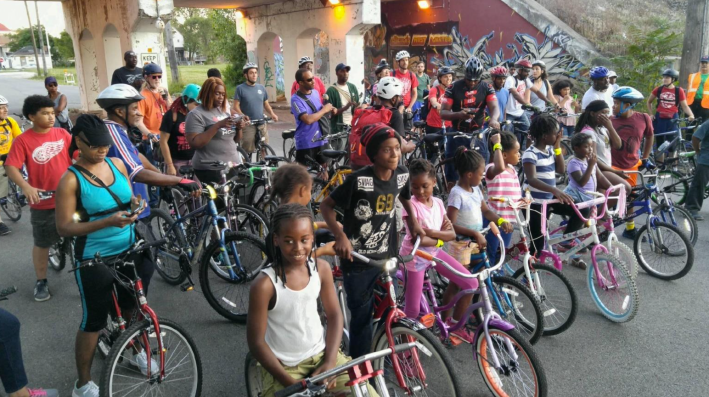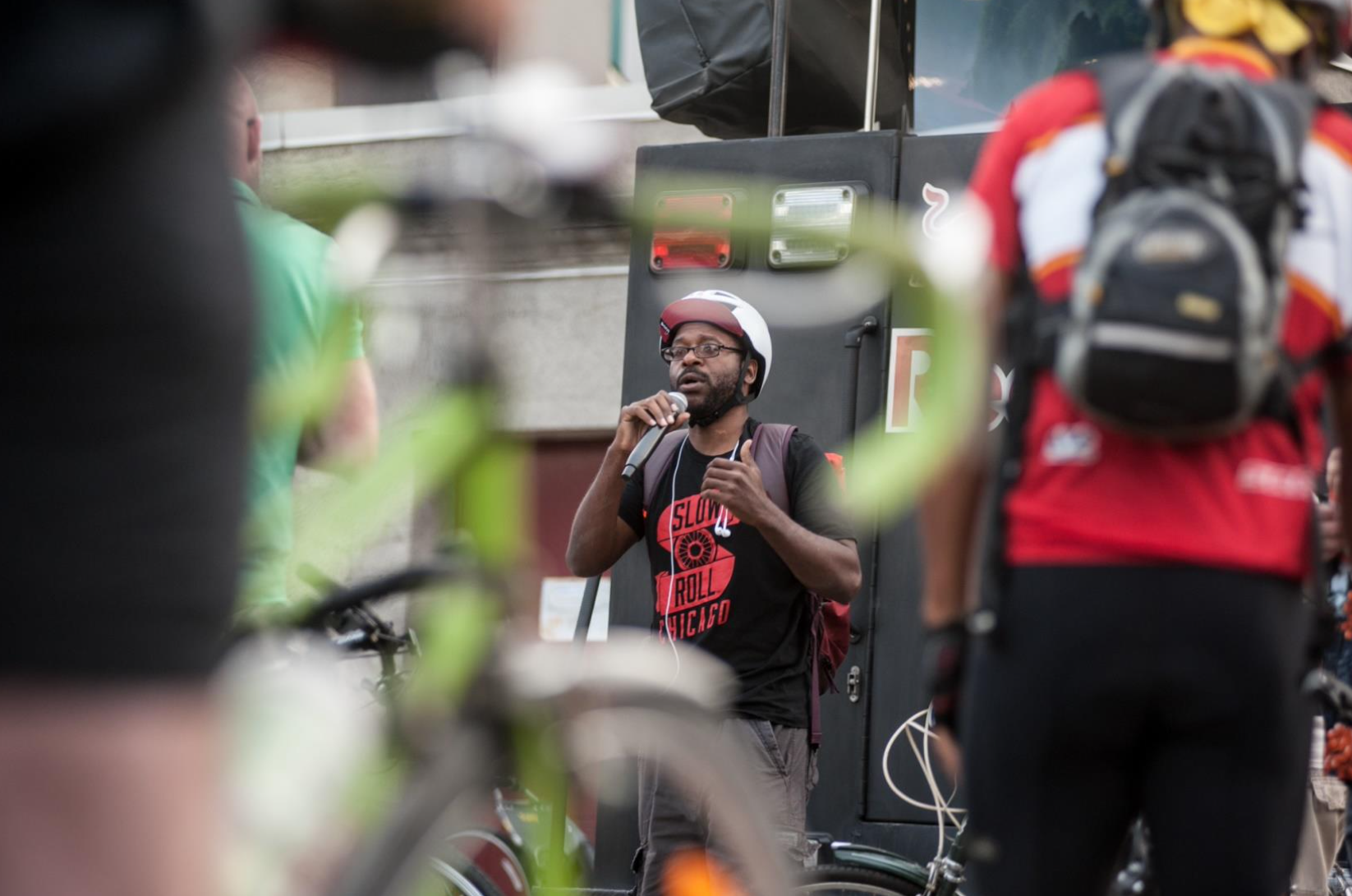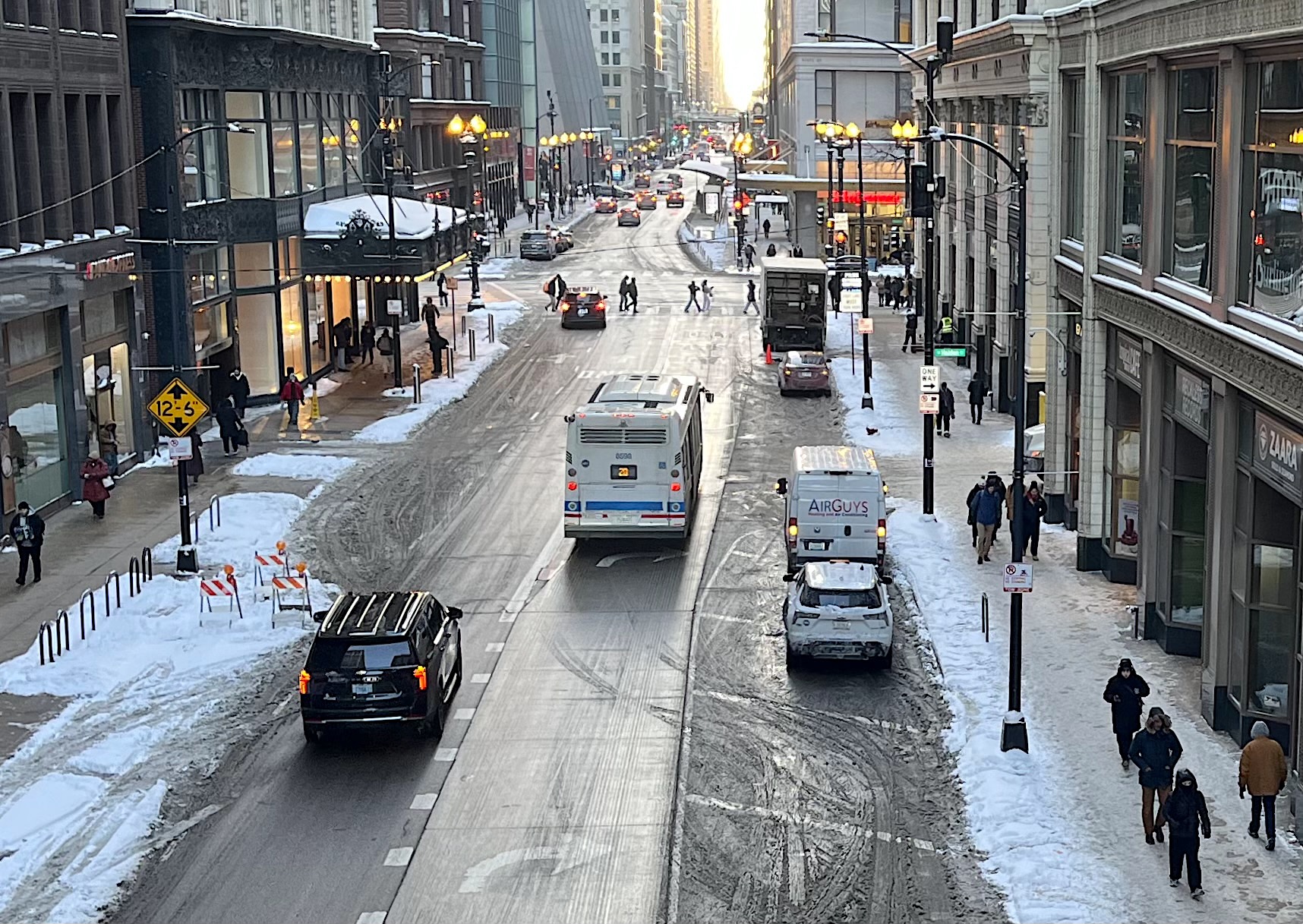Olatunji Oboi Reed the president and CEO Equiticity, a Chicago nonprofit that pushes for transportation equity and racial justice, returned to advocacy this summer after taking a break from the work for mental health reasons. Reed opened up to Streetsblog about the challenges he's faced over the years with clinical depression and why he now feels ready to move forward, and discussed Equiticity's upcoming campaigns.
Reed, who grew up on the Chatham community on Chicago's South Side, began his career as a community redevelopment agency market coordinator at JPMorgan Chase, doing community development work in Bronzeville. He later took a position as vice president and community relations director for Citigroup, and then worked at Nike.
Around the time Reed joined Nike, he was struggling with depression and turned to bike riding, which he credits with helping to pull him out of extended social isolation. After that he started a small cycling group with friends and family called the Pioneers, which he eventually folded into the existing Black cycling organization Red, Bike and Green.
In 2014, Reed co-founded Slow Roll Chicago, a spin-off of the Slow Roll rides that started in Detroit. Reed's goal was to bicycle equity in our city, including the just distribution of bike infrastructure, programs, services, and other resources, explicitly targeting and prioritizing the communities who need the activity of cycling the most, namely low-to-moderate-income neighborhoods of color on the South and West sides.
In 2017 Reed launched Equiticity in order to expand the scope of his transportation equity work nationally and globally. “We do research and we do advocacy,” he said. “We work to execute our vision of establishing a mid-to-large U.S. city [Chicago] where racial equity is fully operationalized and integrated into every resource, every budget, every policy, every department that is under the mayor’s purview.”
Equiticity’s current research study, Understanding Mobility Justice in Chicago, explores transportation within the context of racial equity and mobility justice, particularly how transportation access and the lack of it impacts Black and Brown people on the South and West sides. The group’s advocacy work is focused on three goals: equitable distribution of resources to low-income communities of color; community voice in the public planning process; and respect for community needs, culture and history to increase resident engagement.
Because Equiticity doesn’t have a physical office space, its internal operations haven't been affected much by COVID-19. Both Reed and the organization’s research coordinator work out of their homes. The workers still talk on the phone, video chat, correspond via email, and work on shared documents via Google Drive.
“What has changed is how we think about our work in the age of COVID, where many, perhaps most essential workers are Black, Brown, and low-to-moderate income," Reed said. "It does heighten our awareness around the importance of racial equity in mobility justice, it heightens our awareness around how important transit is right now so that essential workers are able to get to work and get home and be safe during that process."

Reed added that with cycling having become such a popular pastime for people during the pandemic, Equiticity didn’t want communities of color to left out. Due to the high demand for bikes and supply chain issues, it's challenging to purchase a new bike right now. Bringing bikes and bike-share into POC neighborhoods is an important element of Equiticity's work.
Reed has taken a few sabbaticals in the past to cope with mental difficulties, and last February that he started going through some hard times again. Once Reed started to feel better, he slowly became active again with the organization that he loves.
Asked if he had any advice for others who fight clinical depression, Reed’s suggestion was to get help, and not to try to deal with the pain on your own, or be ashamed of mental illness. He added that many Black and Brown people struggle with feelings of shame over having a mental illness. He noted that depression, bipolar, schizophrenia, and other types of mental illness are physical conditions like cancer, heart disease, a broken leg, or muscle pain.
“You know, the brain is a physical part of our body, it is a physical organ," Reed said. "So don’t be ashamed of it. I did not acknowledge my depression, which manifested in high school, until I was probably upwards of 30 years old. It took me that long to finally recognize and acknowledge to myself first, that I struggle with a mental illness.”
According to Reed, there many people out there to talk with about depression. Besides family and friends, there are mental health providers whose services may be free or operate on a sliding fee scale based on a patient’s income. Other things that have been helpful for Reed, besides medication and therapy, are exercise and yoga. Physical activities that Reed loves include, of course, bike riding along the lakefront and walking in parks and around his neighborhood, currently North Lawndale
“Those are some of the things I know to keep in my toolbox to stay healthy,” said Reed. “I certainly recommend them to others and also recommend people really get out to one of the things in their life that help them stay healthy. And then try to incorporate those things into their daily regular routine. Should that be dance, make it a point to dance once a day. Should that be socializing, make it a point to hang out with family and friends every weekend.”
It's great that Reed has returned to feeling healthy, and Streetsblog Chicago wishes him continued good health and success as her pursues the goal of mobility justice in our city.






